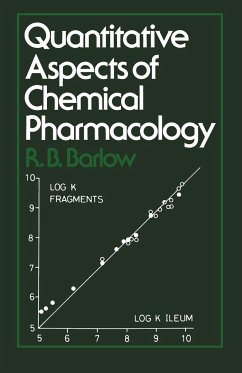
Temporal Aspects of Therapeutics

PAYBACK Punkte
20 °P sammeln!
Drugs are molecular agents of a physician's purpose. Discussions of their mechanisms of action center upon biochemical processes, even though the therapeutic intent may be to create an effect at a higher level of organization. We often prescribe to stop pain, increase vigor, assure sleep, curtail infection, alleviate inflammation, elevate mood, etc. To achieve rational therapy at high levels of organization it is not enough to know the molecular structures of drugs, and the points at which they couple into biochemical reaction chains. Such knowledge deals with static concepts, whereas the bios...
Drugs are molecular agents of a physician's purpose. Discussions of their mechanisms of action center upon biochemical processes, even though the therapeutic intent may be to create an effect at a higher level of organization. We often prescribe to stop pain, increase vigor, assure sleep, curtail infection, alleviate inflammation, elevate mood, etc. To achieve rational therapy at high levels of organization it is not enough to know the molecular structures of drugs, and the points at which they couple into biochemical reaction chains. Such knowledge deals with static concepts, whereas the biosystems we treat extend in the dimensions of time as well as in those of space. Even when "resting", a biosystem manifests a dynamic stability, and sustains numerous processes whose successive states follow trajectories in time. A chemical message is not necessarily received by a biosystem as the same signal at one time as at another. Studies of cell cycle biochemistry, and of circadian variations in toxicity of some agents, have emphasized the importance of time as an aspect of therapeutics. In this volume, temporal aspects of living systems are considered. In the first section they are dealt with from the point of view of general design principles, in three papers by Morowitz, by Yates and Iberall, and by Winfree. In the second section, papers by Kaiser and by Thompson present accounts of sequential events in fundamental subcellular processes.














